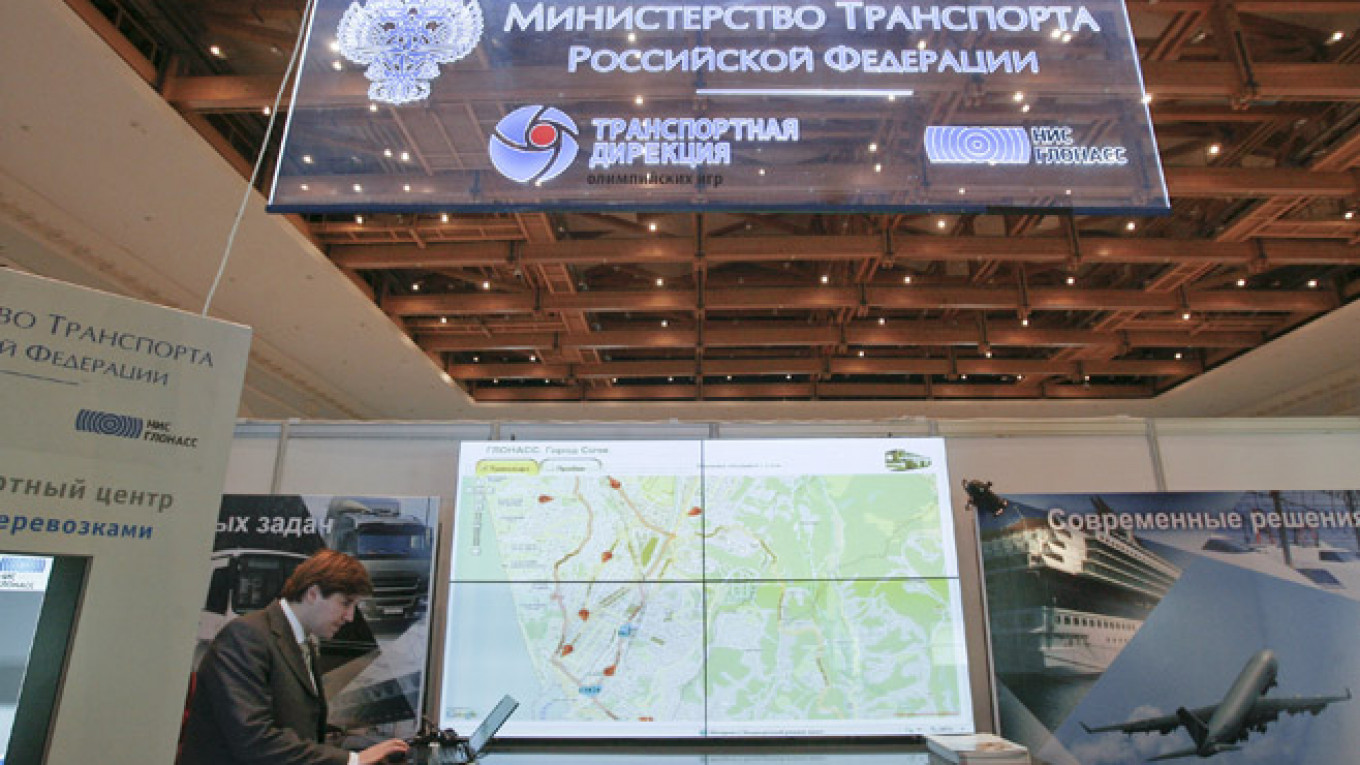Special report for MT
Russia has upped the stakes in its tussle with the U.S. over the 11 Global Positioning System, or GPS, research stations located in Russia by blocking the use of the information they provide in a move to press Washington to allow Russia to install its own global navigation system's stations on U.S. soil.
"In accordance with a Government order … on June 1, 2014, measures have been implemented to exclude the use of information from stations of the global seismographic network working with signals from the GPS system and based on the Russian territory … including for military purposes," the Federal Space Agency, or Roscosmos, said in a press statement released Sunday.
GPS has become a contentious issue between the U.S. and Russia against the backdrop of the crisis in Ukraine following Moscow's annexation of Crimea in March.
Recently, GPS and its Russian rival, the Glonass satellite navigation system, have become instruments of that disagreement, with Russia threatening to deactivate GPS stations on its territory if the U.S. does not agree to allow Glonass tracking stations to be built on U.S. territory, since these stations would enhance the overall accuracy of the Russian navigation system.
The U.S. operates 11 GPS stations on Russian soil, but they do not appear to be of the same type that Moscow wants to build in the U.S. Instead, they are scientific stations that make up a network of research stations called the North Eurasian GPS Deformation Array, or NEDA, which is operated, among others, by the Russian Academy of Sciences' Geophysical Service. NEDA tracks continental drift, monitors seismic events and conducts related earth sciences research, according to NEDA's powerpoint presentation on the International Global Navigation Satellite System Service.
Pavel Luzin, a space policy analyst at the Institute of World Economics and International Relations told The Moscow Times that the move would have no impact on the quality of the GPS system, especially for the U.S. military.
Instead, the decision is a political move — "it is all deceit and calculated for internal use," Luzin said.
The Moscow Times was unable to contact scientists and officials involved in the NEDA project for clarification on how their operations have changed. Roscosmos, when pressed for clarification, directed us to the press release.
However, Deputy Prime Minister Dmitry Rogozin took to Twitter on Monday to help shed light on the situation.
"Allow me to explain," his Tweet began. "Technical measures have been developed and adopted to restrict the use of these stations for military purposes. Now they are under to our control," he added.
Last month, Rogozin said that Russia would close U.S. GPS stations located in Russia if the U.S. did not resume negotiations on the placement of Glonass monitoring stations on U.S. soil by May 31.
At the St. Petersburg International Economic Forum on May 22, Roscosmos deputy Sergei Savelyev said that he anticipated negotiations with the U.S. to begin "very soon, within the next two or three weeks."
As of this moment, neither side has officially issued any additional statements pertaining to the status of these negotiations. However, Rogozin on Monday also said on Twitter that "talks with the U.S. on the deployment of our stations in its territory have been initiated," and reaffirmed Aug. 31 as the deadline for a preferential outcome.
According to Rogozin's earlier statements, if the U.S. does not agree by Aug. 31 to allow the placement of Glonass stations in the U.S., Moscow will completely shut down the GPS stations in Russia.
Curiously, Russia has chosen to press this issue on the grounds of equality, when in fact the GPS stations in Russia are not analogous to the type of stations that Russia would like to see placed in the U.S. They are used for scientific research and make no tangible contribution to the accuracy of the GPS system.
Russia has sought to build Glonass monitoring stations since the system was restored as part of a federal program enacted by President Vladimir Putin in the early 2000s, but the U.S. has dragged its feet on the issue ever since. Last November, the issue was brought to the forefront once again when U.S. national security and intelligence officials formally raised their concerns with the U.S. Congress that the placement of Glonass stations in the U.S. might be used to increase the accuracy of Russian guided missiles or for electronic surveillance, The New York Times reported.
See also:
Rogozin Threatens to Deactivate GPS Stations in Russia
Contact the author at [email protected]
A Message from The Moscow Times:
Dear readers,
We are facing unprecedented challenges. Russia's Prosecutor General's Office has designated The Moscow Times as an "undesirable" organization, criminalizing our work and putting our staff at risk of prosecution. This follows our earlier unjust labeling as a "foreign agent."
These actions are direct attempts to silence independent journalism in Russia. The authorities claim our work "discredits the decisions of the Russian leadership." We see things differently: we strive to provide accurate, unbiased reporting on Russia.
We, the journalists of The Moscow Times, refuse to be silenced. But to continue our work, we need your help.
Your support, no matter how small, makes a world of difference. If you can, please support us monthly starting from just $2. It's quick to set up, and every contribution makes a significant impact.
By supporting The Moscow Times, you're defending open, independent journalism in the face of repression. Thank you for standing with us.
Remind me later.


